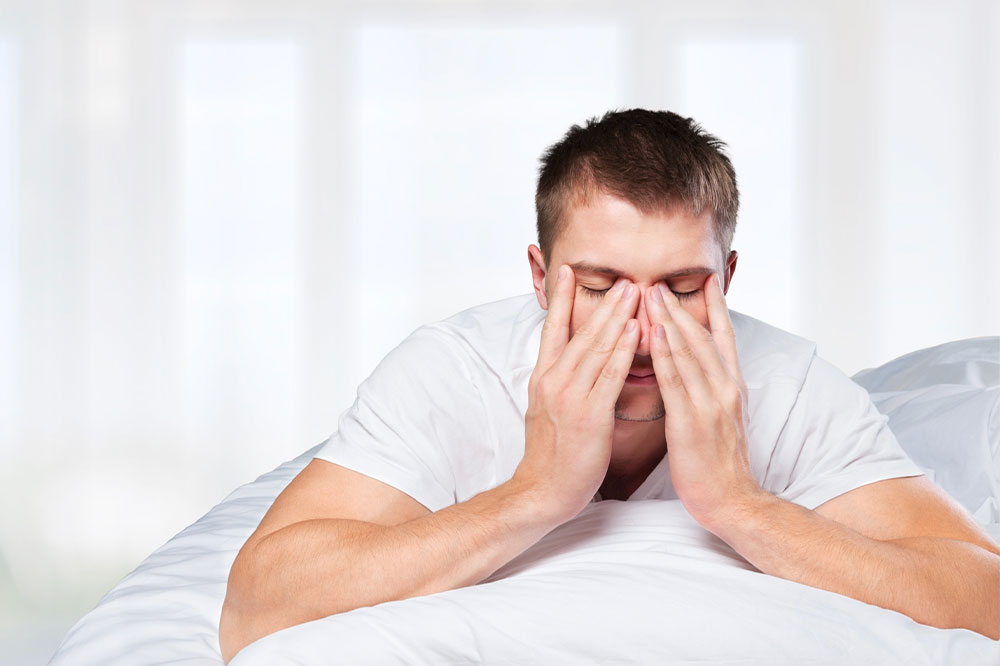Understanding the 4 Most Common Sleep Problems and Their Symptoms
Discover the top four common sleep disorders, their symptoms, causes, and treatment options. Learn how to identify issues like insomnia, restless leg syndrome, sleep apnea, and narcolepsy early to enhance sleep quality and overall health. Maintaining good sleep hygiene and seeking medical advice can prevent serious health risks related to sleep disturbances.

Understanding the 4 Most Common Sleep Problems and Their Symptoms
According to research from Scientific Reports, over half of the global population encounters sleep issues at some stage. These problems can affect overall health, daily functioning, and are often linked to long-term conditions such as heart disease and diabetes. Recognizing the symptoms, causes, and ways to prevent these common sleep disorders is crucial for maintaining good health. This article discusses four prevalent sleep problems, their signs, and available treatment options to help you stay proactive about your sleep health.
What are sleep disorders?
Sleep disorders, also known as sleep-wake disturbances, disrupt the regular sleep cycle, impacting sleep duration and quality. Most adults need 7-9 hours of restful sleep each night. Ongoing sleep issues can lead to serious health risks including heart problems and metabolic irregularities.
Identifying Key Sleep Disorders and Their Symptoms
Insomnia
Insomnia makes it difficult to fall asleep or stay asleep, whether temporarily or over a longer period. Short-term insomnia lasts for days, while chronic insomnia occurs multiple times weekly for months. Studies show that 50-70 million Americans suffer from insomnia, often related to stress, anxiety, lifestyle, or health issues like asthma or thyroid problems. Symptoms include trouble initiating sleep, frequent awakenings, exhaustion, mood swings, and trouble concentrating. Medical support such as therapy or medication may be necessary if it persists.
Restless Leg Syndrome (Willis-Ekbom Disease)
This neurological condition causes irresistible urges to move the legs during rest, resulting in disturbed sleep. Though causes are not fully understood, it has links to genetics, stress, low iron, and health issues like diabetes or kidney disease. Symptoms include leg twitching, tingling sensations, and electric shock feelings. Treatments involve lifestyle adjustments and medications that increase dopamine levels.
Sleep Apnea
Sleep apnea affects over a billion people worldwide, characterized by breathing stops during sleep, which can be dangerous. Risk factors include obesity, nasal obstructions, enlarged tonsils, and underlying health concerns. Common signs are loud snoring, choking episodes, restless sleep, cognitive disturbances, and mood swings. Mild cases may improve with weight management and lifestyle changes; severe cases often require continuous positive airway pressure (CPAP) therapy.
Narcolepsy
This neurological disorder causes overwhelming daytime sleepiness and sudden sleep attacks. Approximately 1 in 1000 people are affected, often due to neurotransmitter imbalances, genetic factors, or autoimmune responses. Symptoms include hallucinations, sleep paralysis, mood variations, and muscle weakness. Although currently incurable, management involves lifestyle modifications and stimulant medications to boost alertness and improve quality of life.
Sleep problems can be overlooked until they significantly affect health. Recognizing the early signs of these common disorders helps in timely treatment, improving sleep quality and preventing long-term health complications. Maintaining healthy sleep habits and consulting healthcare providers are vital for overall well-being.


